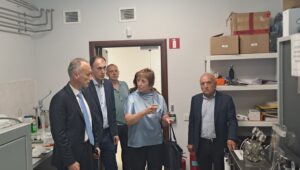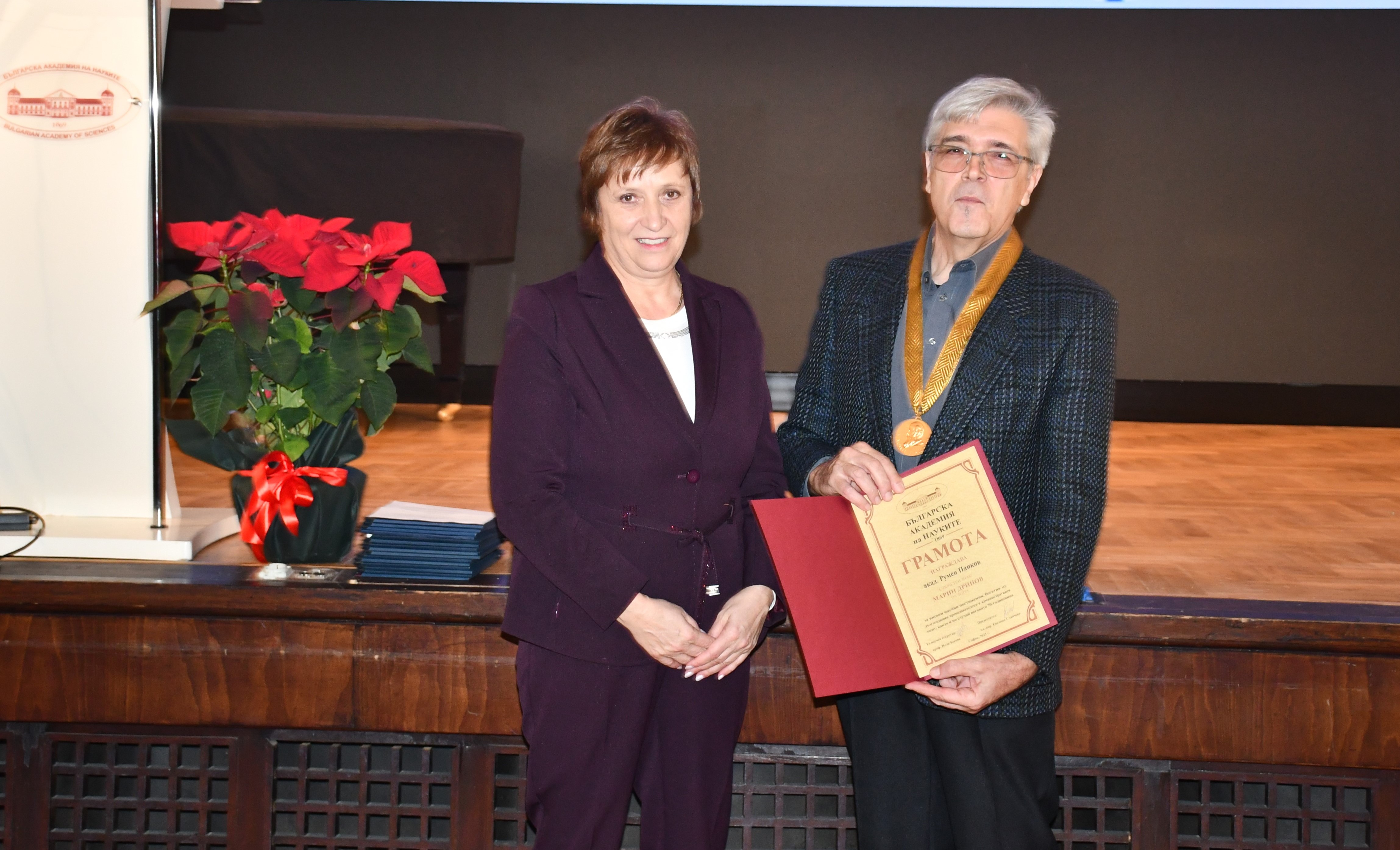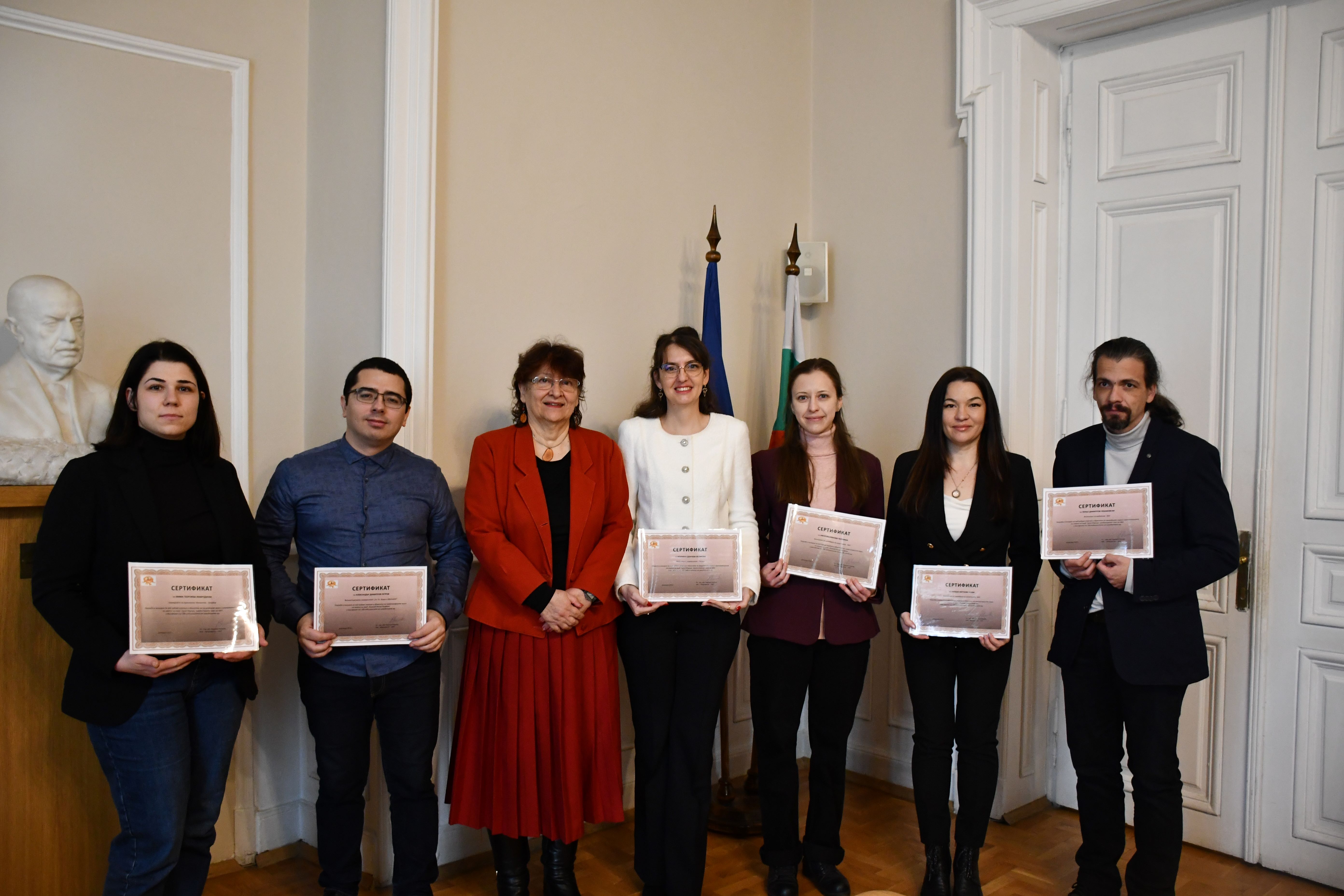The opportunities of science to support new industries and education were discussed at a meeting with the Minister of Education and Science Krasimir Valchev by scientists from the Institute of Information and Communication Technologies (IICT) and the Institute of Electrochemistry and Energy Systems (IEES). The scientists presented the scientific activities and the latest developments with international funding that they are currently working on. The average age of the scientific staff in the two institutes is 47 and 49 years. The visit was attended by the President of BAS, Corr. Memb. Evelina Slavcheva.
The chairman of the scientific council at IICT, Prof. Galia Angelova, announced that the modern equipment and the current topics of scientific research attracted more and more young people, with the greatest interest in working with the HEMUS supercomputer. Thirty-six PhD students, including foreigners, are being trained at the Institute, Prof. Angelova added. Software for the synthesis of Bulgarian speech and a project for the dubbing of subtitles in cinema are among the latest successfully implemented projects at the Institute. Minister Valchev was introduced to the activities of the Laboratory of 3D Digitisation and Microstructural Analysis, where scientists use tomography and photographic techniques to help archaeologists with reconstructions of ancient vessels. The technical equipment in the laboratory is also used to support industry through various engineering tasks carried out there.
The Director of the Institute of Electrochemistry and Energy Systems, Assoc. Prof. Plamen Nikolov, presented some of the most significant projects in the field of batteries, hydrogen capture and storage, as well as in the synthesis and analysis of materials. In the last year, four young scientists have been recruited to the Institute and 113 students have been trained in the laboratories of IEES. The Minister of Education and Science got acquainted with a hydrogen electrochemical pump which increases the level of hydrogen through an electrochemical reaction and can serve as a hydrogen filter. The progress of the “Hitmobil” Centre of Competence, headed by Corr. Memb. Evelina Slavcheva, was also presented. Among the scientists’ current developments are also improving the performance of batteries in the automotive industry and testing hydrogen storage materials in aviation.










